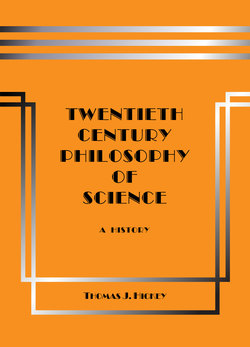Читать книгу Twentieth-Century Philosophy of Science: A History (Third Edition) - Thomas J. Hickey - Страница 56
На сайте Литреса книга снята с продажи.
3.25 Univocal and Equivocal Terms
ОглавлениеThe definitions of descriptive terms such as common nouns and verbs in a unilingual dictionary function as semantical rules. Implicitly they are universally quantified logically, and are always presumed to be true. Usually each lexical entry in a large dictionary such as the Oxford English Dictionary offers several different meanings for a descriptive term, because terms are routinely equivocal. Language economizes on words by giving them several different meanings, which the fluent listener or reader can distinguish in context. Equivocations are the raw materials for puns. There is always at least one semantical rule for the meaning complex for each univocal use of a descriptive term, because to be meaningful, the term must be part of the linguistic system of beliefs. If the use is conventional, it must be capable of a lexical entry in a dictionary, or else recognized by some clique as an argot.
A descriptive term’s use is univocal, if no universally quantified negative categorical statement accepted as true can relate any of the predicates in the several universal affirmations functioning as semantical rules for the same subject term. Thus if two semantical rules have the form “Every X is A” and “Every X is B”, and if it is also believed that “No A is B”, then the terms “A” and “B” symbolize parts of different meanings for the term “X”, and “X” is equivocal. Otherwise “A” and “B” symbolize different parts of the same meaning complex associated with the univocal term “X”.
A definition in a unilingual dictionary functions as a semantical rule. But the dictionary definition is only a minimal description of the meaning complex of a univocal descriptive term, and it is not the whole description. Univocal terms have many semantical rules, when many characteristics can be predicated universally to a given subject. Thus there are multiple predicates that universally characterize ravens, characteristics known to the ornithologist, and which may fill a paragraph or more in his ornithological reference book.
Descriptive terms can become, as it were, partially equivocal through time, when some parts of the term’s meaning complex are unaffected by a change of defining beliefs, while other parts are simply dropped as archaic or are replaced by new parts contributed by new beliefs. In science this partial equivocation occurs when one theory is replaced by another newer one due to a test outcome, while the test designs for both theories remain the same. A term common to old and new theory may remain univocal only with respect to the parts contributed by the test-design language.
